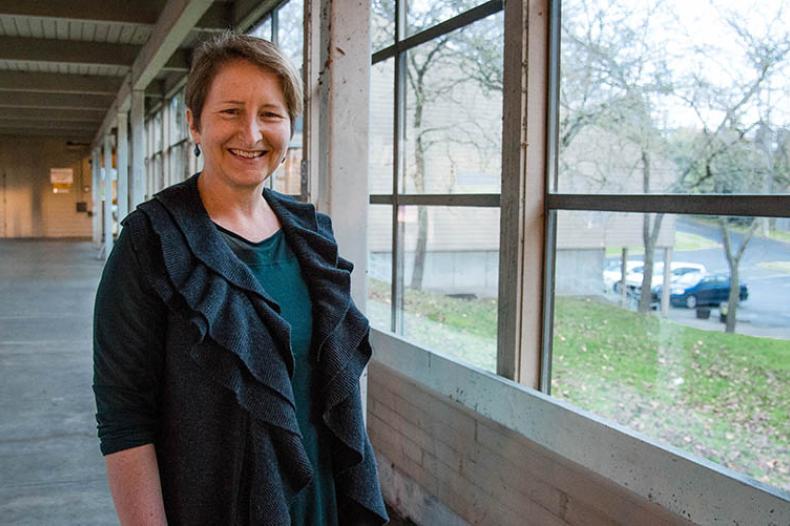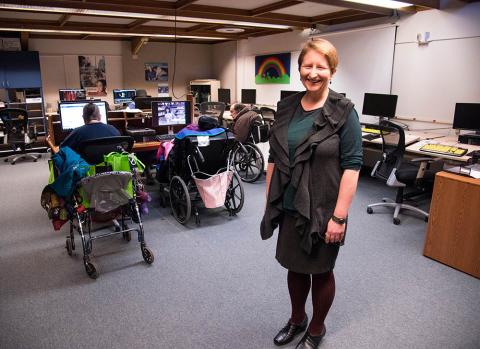Elizabeth | Reaping benefits of technology
"If I didn’t know how to use the internet I would have nothing. It opened up the world for me."
“Anybody can become disabled at any moment. It’s the one demographic that anybody can fall into – we never know when something’s going to happen,” said Elizabeth, a woman who experienced a debilitating illness as a young college graduate.
Elizabeth’s illness changed the trajectory of her life and quashed her career plans. While she was struggling with her deteriorating health, a technological revolution was taking place.
“My life went underground for 15 years and when I came up the internet was there and all this other technology … that had totally left me behind.”
 With help from a social worker she got set up with a computer and over time Elizabeth gained technical skills she could use to access online resources and information.
With help from a social worker she got set up with a computer and over time Elizabeth gained technical skills she could use to access online resources and information.
“Digital literacy was critical, because without it I’d still be in the dark – without it I would have nothing,” she said.
During a period of homelessness, Elizabeth signed up for a place on Seattle Housing Authority’s waitlist and eventually moved into permanent stable housing.
“When I got housed, I got healthy, I got educated at the UW and I got work. I transitioned off of Social Security Disability Insurance after 18 years,” she said.
Elizabeth has addressed the Seattle City Council, advocating for those who are homeless or at risk of becoming homeless. She has urged councilmembers to support digital equity initiatives. It is important for her to utilize the skills she has gained, she said, “to try and give back somehow to the community, however I could do it.”
In 2016, she was part of a committee that applied for, and received, a grant from the City of Seattle’s Technology Matching Fund Projects to support a mobile lab project for nine SHA properties.
“A lot of people in housing authority buildings can’t afford internet. And a lot of people can’t get computers, so the mobile lab will have six laptops,” she said.
In 2017, the mobile lab project received an additional grant to fund expansion of its services.

